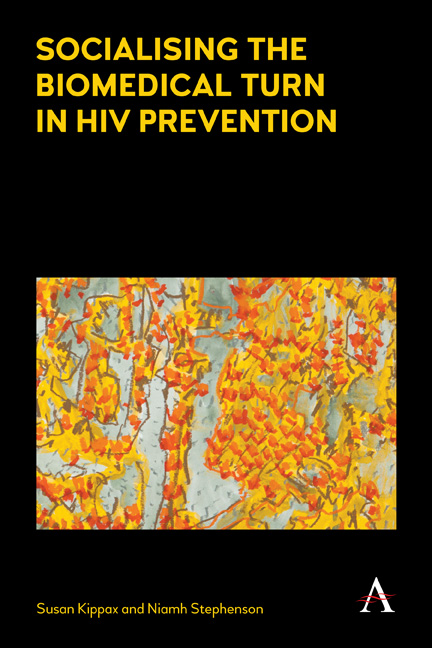Book contents
- Frontmatter
- Dedication
- Contents
- List of Figures
- List of Tables
- Acknowledgements
- Introduction
- Part I EFFECTIVE HIV PREVENTION
- Part II SOCIAL TRANSFORMATION
- 4 The Biomedical Narrative of HIV/AIDS
- 5 Risk and Vulnerability
- 6 Social Practices of Communities
- 7 Researching Social Change, Working with Contingency
- Notes
- References
- Index
4 - The Biomedical Narrative of HIV/AIDS
from Part II - SOCIAL TRANSFORMATION
Published online by Cambridge University Press: 17 June 2017
- Frontmatter
- Dedication
- Contents
- List of Figures
- List of Tables
- Acknowledgements
- Introduction
- Part I EFFECTIVE HIV PREVENTION
- Part II SOCIAL TRANSFORMATION
- 4 The Biomedical Narrative of HIV/AIDS
- 5 Risk and Vulnerability
- 6 Social Practices of Communities
- 7 Researching Social Change, Working with Contingency
- Notes
- References
- Index
Summary
The faltering of HIV/AIDS prevention – in some cases after initial successes as described in the two previous chapters – is cause for concern. Such concern may account for the embrace by many in biomedicine of advances such as male circumcision, pre-exposure prophylaxis (PrEP) and treatment as prevention (TasP). We believe this embrace to be premature and may, as we have suggested, exacerbate the ‘faltering’. Although male circumcision is likely to help in reducing HIV transmission in generalised epidemics such as those in sub- Saharan Africa, it does not provide a complete solution. Furthermore, given the inconsistent results in regard to the efficacy of PrEP, and that evidence for the efficacy of TasP rests on studies of cohabiting couples, the calls for PrEP and TasP to be rolled out as major prevention initiatives for entire populations are troubling. Not only are there questions with regard to the efficacy of these prevention strategies, but there is confusion as to how public health would ensure their effectiveness.
Consider how Montaner spoke about TasP in an interview conducted during the 2013 International AIDS Society Conference on HIV Pathogenesis, Treatment and Prevention (IAS) Conference; an interview that occurred when TasP was endorsed by the World Health Organization (WHO) and included in its guidelines for HIV treatment and prevention (WHO, 2013b). Montaner argued: ‘From a normative perspective we [proponents of TasP] are there. The next step is we need to recruit […] [people] to do the very difficult work of implementation science [; …] we want you to help us deliver under the promise of Treatment as Prevention’. The framing of TasP as heralding the ‘end of AIDS’ makes sense when we think of ‘implementation science’, as Montaner suggests – that is, simply (and simplistically) as enabling public health to ensure that people will do what public health deems best: if HIV-negative, test frequently and regularly for HIV and, if HIV-positive, take up and adhere to antiretroviral treatments (ART). However, as we have documented in the cases of Uganda and Australia and will further demonstrate in the remainder of this book, effective HIV prevention does not work like that.
- Type
- Chapter
- Information
- Socialising the Biomedical Turn in HIV Prevention , pp. 69 - 88Publisher: Anthem PressPrint publication year: 2016



